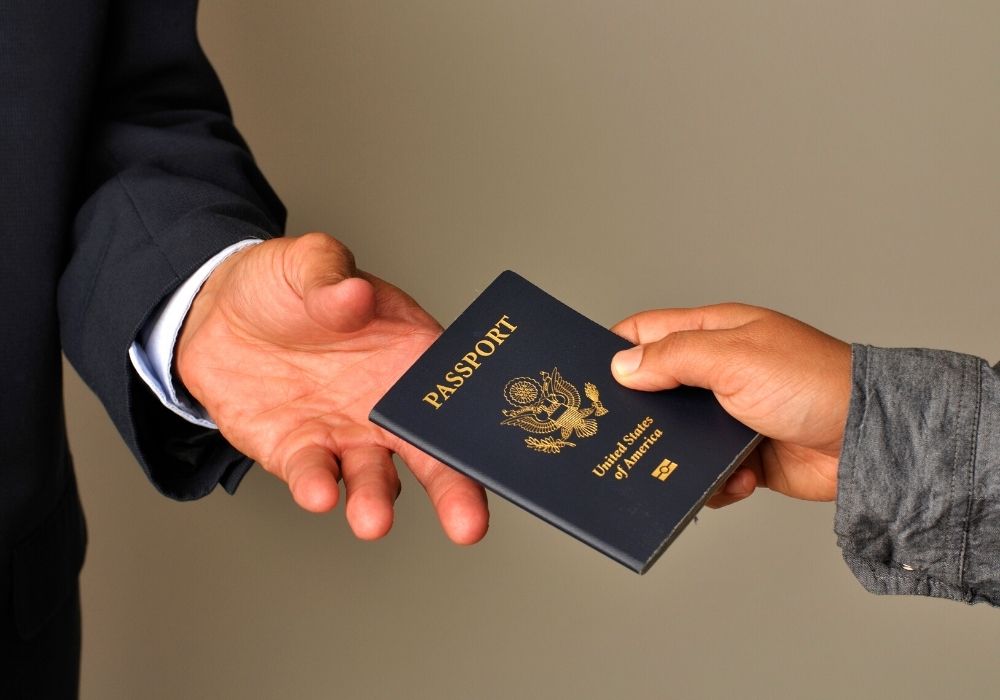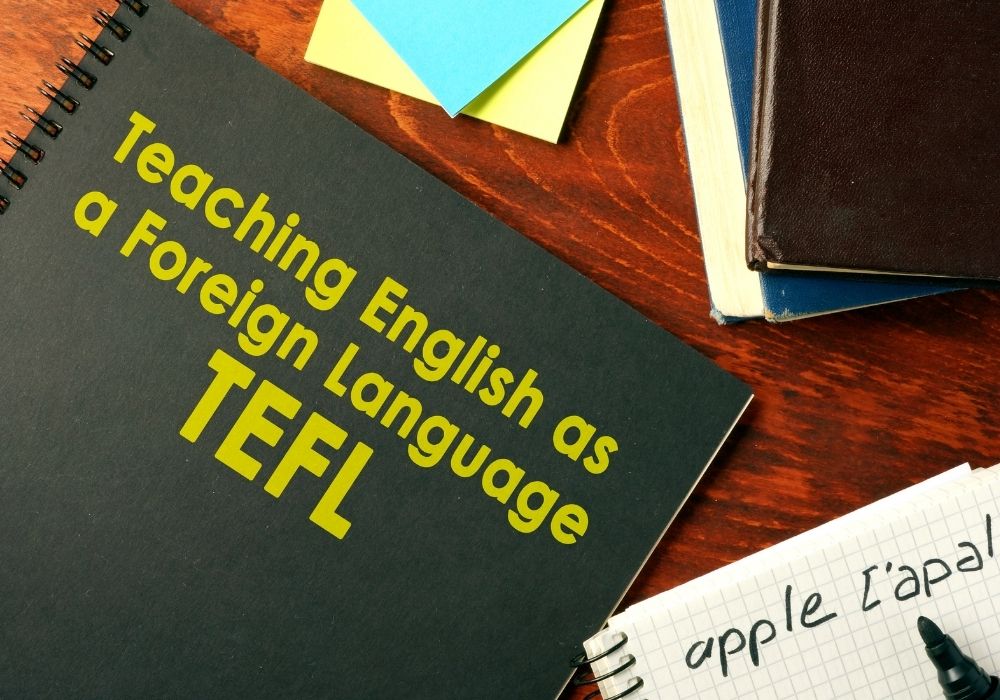Getting a job in another country is always a complicated process. But the requirements for teaching English in South Korea aren’t as extensive or difficult as you may think.
Fortunately, for many jobs, such as teaching at academies called hagwons, the requirements to teach English in South Korea don’t include prior experience or even a teaching certificate.
You can land one of these jobs with little more than a bachelor’s degree in any subject.
That was my situation when I found my first teaching job. I had recently graduated from university and had never taught before, so I only met the minimum requirements for teaching English in Korea.
My newly acquired bachelor’s degree was enough to get hired, however. I found a job at a good hagwon and began what turned out to be a lasting career in teaching English abroad.
Requirements for teaching English in South Korea have changed somewhat since then, and other types of schools, such as universities, require more qualifications and certifications from potential teachers than hagwons.
In this article, I’ll review these teaching English in Korea requirements.
Teaching English in Korea Requirements: The Basics
Besides consulting articles like this one, the best way to find out the requirements for teaching English in South Korea is to search online for English teaching jobs.
Their job descriptions typically list the requirements for each specific job, with additional important information such as the salary, number of working hours, and location.
A common website for finding teaching jobs all over the world is Dave’s ESL Cafe. You should spend some time browsing through job descriptions to get an idea of what the requirements for teaching English in South Korea are.
Another good website that is specific to Korea is the KOTESOL association website. It’s particularly good for finding university jobs. Finally, have a look at the EPIK Program, which was initiated by the Korean Ministry of Education.
Once you find a school that you like, a recruiter or school representative will help you through the hiring and visa application process.
They’ll give you a list of the documents you need for the particular job, as well as how to get them certified with apostilles or notarizations, if necessary.
☞ SEE ALSO: Teach English to Korean Students Online – 7 Websites That Pay
Types of Schools in South Korea
Different schools have different requirements for teaching English in South Korea. Some of these include the teacher’s nationality, qualifications, and experience.
The main types of schools where you can teach English in Korea are hagwons, public and private grade schools (elementary, middle, and high schools), and universities.
Requirements for Teaching English in South Korean Hagwons
Hagwons are small, private academies commonly attended by kindergarten students and older children. There are hagwons for math, tae kwon do, musical instruments, and practically any other subject you can imagine.
English hagwons are one of the most prevalent types. They usually have kindergarten classes during the morning and early afternoon, and then shorter classes in the afternoon for students in elementary through high school.
Hagwons for children have the fewest requirements for teaching English in South Korea. Usually, only a bachelor’s degree is necessary, and it doesn’t matter which subject it’s in.

There are also hagwons for adults in South Korea. The requirements for these schools can be slightly stricter than at hagwons for children. Along with a bachelor’s degree, they may also require a TESL/TEFL certificate and previous teaching experience.
If you’d rather teach adults than children but don’t have the experience or other requirements to do so, a good long-term plan is to begin teaching at a hagwon for children and later find a job at a school for adults.
Hagwon contracts are almost always for one full year. Along with a monthly salary, they usually provide housing, airfare reimbursement, and two one-week paid vacations.
Requirements to Teach English in South Korean Public and Private Grade Schools
Some grade schools (elementary, middle, and high school) in South Korea will hire anyone with a bachelor’s degree, like at hagwons.
Most, however, have somewhat tougher requirements, preferring teachers with experience and a degree in education or at least English. A TEFL certificate of at least 100 hours is typically required. Click here for a list of the best TEFL certificates.
It may be possible to teach other school subjects, in the English language, of course. For example, if you have a bachelor’s degree in history, you may get hired as a history teacher.
As with any job, it’s a good idea to browse through many job descriptions to get an idea of what their teaching English in Korea requirements are. Have a look at the
Requirements to Teach English in South Korean Universities
University jobs are some of the best teaching jobs in South Korea. They also have the most stringent requirements.
Many universities require two or three years of previous teaching experience, often but not always at the university level.
Many people who teach in South Korea for long periods of time are able to work their way up to universities. Experience teaching at hagwons or grade schools, along with a better understanding of the country and how it works, allows them to eventually get an in-demand university teaching job.
Having a master’s degree and a TESL/TEFL certificate is another common requirement at universities. Even if it isn’t a formal requirement, if you have either of these qualifications you’ll certainly be paid more.
☞ SEE ALSO: 15 Things To Do in Seoul, Korea
Requirements for Teaching English in Korea
The following requirements are necessary for finding a teaching job in South Korea.
1. Passport
Your passport must remain valid for the duration of your contract, so at least a year from the day when you arrive in South Korea.

If you decide to stay for a second year but your passport will expire during that time, don’t worry. You can apply for a new passport at your home country’s consulate. Once you get your new passport, you can use it to apply for your second visa.
2. Nationality
Many schools only accept teachers from English-speaking countries.
If you don’t come from one of these countries, tell the recruiter or representative right away, because an early part of the hiring process is when you send a scan or photo of your passport.
Some schools, especially hagwons, may hire non-native speakers with a high level of English and an advanced certification to prove it (such as from Cambridge). It’ll be much more difficult to find schools like this, but they do exist.
Some schools, mostly universities and grade schools, specify that they only accept teachers from seven countries: the US, Canada, the UK, Ireland, Australia, New Zealand, and South Africa.
3. Teaching Experience
As mentioned above, the vast majority of hagwons for children don’t require previous teaching experience. Many hagwons for adults do require experience, though.
Grade schools may or may not require experience, and universities always do, although this previous experience doesn’t always have to be at another university. Two or three years at a hagwon might be enough.
4. Language skills
Many people are surprised that proficiency in the Korean language is not a requirement for teaching English in South Korea.
In fact, the majority of English teachers in South Korea didn’t speak any Korean when they first arrived. And once there, many foreigners never bother to learn any more than the basics.
Of course, it’s a good idea to learn the native language of the country where you live, but it’s not necessary for teaching. English lessons are more effective if they’re 100% in English, and many schools have English-only policies.
Regarding English grammar, you can get by with a hagwon for children with only a basic understanding of it. For teaching adults, you’ll need a higher level of knowledge than simply being a native speaker, and you’ll need to be an expert to work at a university.
You can study grammar on your own, or learn it as part of the content of a TESL/TEFL certificate.
Required Documents for Teaching English in South Korea
In general, better jobs that require experience (such as universities) require more documents, while schools (like hagwons) that accept people without teaching experience require fewer documents.
You’ll need the originals of all documents. Don’t worry, you’ll get them back after applying for your visa in Korea.
Even so, it’s a good idea to make scans or take digital photos and save them somewhere permanent, like a Google Drive or other cloud account.
Once you begin the hiring process, the school will tell you whether you need these documents certified or not. Certifications such as apostilles or notarizations are typical requirements for teaching English in South Korea.

1. Bachelor’s Degree
You can get an English teaching job at a hagwon with a four-year bachelor’s degree in any subject, whether it’s English, engineering, music, or anything in between.
For other types of schools, like grade schools, you’ll probably need a bachelor’s degree in education, English, or some other relevant subject. You can determine what exactly these other relevant subjects are by communicating with individual schools.
You’ll probably need your original transcript too. If you’re not sure, ask the person who helps you through the hiring process.
2. Master’s Degree or PHD
If you have a master’s degree or PHD, especially if it’s in education or English, you’ll have a much better chance at getting a job at a university or a public or private grade school.
Always use the highest degree you have. It won’t only open up better positions to you, but will probably get you paid more.
Same as for the bachelor’s degree, you’ll need the original degree and also the transcript.
3. TESL/TEFL Certificate
Check the requirements for teaching English in South Korea for specific jobs before you sign up for a TESL/TEFL certificate program.
For many schools, this certification isn’t actually required, but merely preferred. Having said that, it will give you a better grasp of lesson planning and classroom situations. And, it may give you a leg up on other candidates for the job.
TESL (Teaching English as a Second Language) and TEFL (Teaching English as a Foreign Language) courses vary greatly in their content and quality, especially among online and in-person courses.

You may spend $100 for a cheap online TEFL course that doesn’t really teach you anything, or you may spend $1,000 for a professional course that will allow you to work anywhere in the world, though probably won’t be necessary for teaching at a hagwon.
Whichever course you choose, you still won’t know if you’re any good at teaching or even if you like it until you set foot in a classroom. And what you learn in the classroom will be far more useful than whatever you learn in a TESL/TEFL program.
This means that a TESL/TEFL certificate isn’t necessary for teaching in South Korea – not for landing an entry-level hagwon job, nor for the actual teaching – but it is preferred.
If after a year at a hagwon, you enjoy teaching and know you want to continue doing it, you can always do a TESL/TEFL course later.
4. Criminal Background Check
Hagwons rarely require a criminal background check, but other types of schools, such as private grade schools, may request one of these certificates. In most cases, you’ll get it at a local police station.
Don’t worry about fulfilling this teaching English in Korea requirement until a school requests it — unless, of course, you have a criminal record.
If it was some minor high-school transgression, then order a criminal background check now, before you begin your job search, to see if it comes up clean or not.
5. Birth Certificate
You probably won’t need your birth certificate to get hired, but it may be necessary once you’re in South Korea. You may need it to open a bank account, to sign up for health insurance, or for something else that requires you to prove your identity.
As with all other documents, you’ll need the original. If you don’t have it, in most cases you’ll need to request it from the hospital where you were born.
6. Certifications: Apostilles and Notarizations
As mentioned earlier, some schools require your university degree (and possibly criminal background check) to be certified with either apostilles or notarizations.
Apostilles are internationally recognized document certifications. They’re signed, stamped, and attached to the document that’s being certified.
In the United States, you can arrange for an apostille by checking the website for the Secretary of State of the state where you graduated from university. Some cost around $10, while others are as cheap as $1. It depends on the state.
It’s a simple process. You mail your degree (and transcript, if necessary), a check for the fee, and a self-addressed stamped envelope to the office, and the documents with the apostilles attached will be mailed back to you.
Other countries have a similar process. Simply do a Google search for “apostille” along with the name of the region or province where you went to university.
Instead of an apostille, the school may require that you get your degree or other documents notarized by a Korean consulate in your country.
In this case, you’ll probably need to visit the consulate to determine the process and the costs, although this information may be available online.
Don’t worry about this until you find a job that wants to hire you. They’ll give you their specific teaching English in Korea requirements.
7. Protection for Your Documents
Part of living and working internationally is carrying around a folder full of original documents. You’ll need a sturdy plastic one that can hold everything described in this article and more.
As you continue teaching, you’ll add more documents to this folder. When you get any new certifications, such as a TESL/TEFL certificate, put the original certificate and transcript in your folder.
Every time you finish a contract at a school and plan to move on, get a letter of recommendation (with details about the job, contact information, and the date) and put it in the folder.
Make two photocopies of everything, one to leave at home with a family member and one to take with you — but not in the same place where you keep the originals.
Also, take digital photos of your passport, work visa, and everything that’s in the folder. Save the photos on a hard drive, and also email copies to yourself.
Summary of English in Korea Requirements
A quick run-down of what we’ve covered. Each type of school has different requirements, but basically, you’ll need:
- a passport
- Bachelor’s degree
- TEFL
- be a native English speaker
- a criminal background check
- For all schools: you’ll need a passport valid for longer than the time you’ll be in South Korea (at least one year) and the original degree and transcript of a bachelor’s degree in any subject.
- For many hagwons for children: all you’ll need is your passport and original degree and transcript — no more. Some schools may ask for a TESL/TEFL certificate, but many won’t.
- For hagwons for adults: you may need a year or two of teaching experience and possibly a TESL/TEFL certificate.
- For public elementary, middle, and high schools: you may need a bachelor’s degree in English, education, or another relevant subject (for example, a degree in chemistry if you’ll teach chemistry classes). Previous teaching experience may be required, along with a criminal background check and TEFL Certificate.
- For Universities: universities almost always require at least two or three years of previous teaching experience. Sometimes hagwon experience counts toward this. You’ll have a much easier time finding a job if you have a master’s degree in a relevant subject, and a TESL/TEFL certificate is useful too. A criminal background check may also be required.
Now You Know What’s Needed to Teach in Korea
Those are the requirements for teaching English in South Korea. Sounds complicated? Trust me, it’s not.
Over the many years since my first English teaching job at a hagwon in South Korea, I’ve found jobs at schools in three other foreign countries. In two of these countries, I worked at multiple universities.
The requirements in those countries were far stricter than the requirements to teach English in South Korea, which upon comparison were quite easy to meet.
Because of this, along with the sheer quantity of jobs available, South Korea is one of the best countries in the world for potential teachers to find their first teaching job. Experienced teachers will find even more options, such as at grade schools and universities.
Good luck.
The post 5 Requirements For Teaching English in South Korea appeared first on Goats On The Road.
![]()




Recent Comments